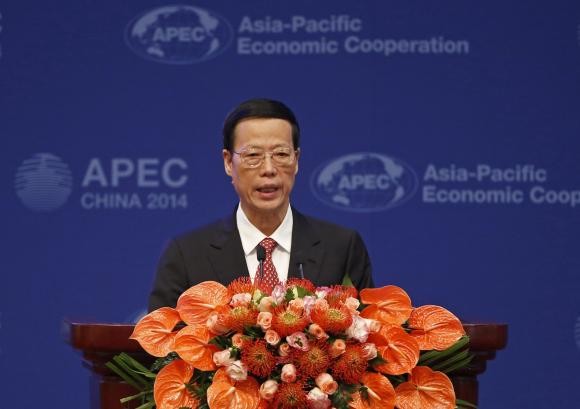All eyes are on China with experts and public officials looking closely at three hot topics in the region that will be tackled during the 22nd Asia-Pacific Economic Cooperation (APEC) in Beijing.
Scholars and politicians from all over the world spoke highly of three topics that will be discussed during APEC's Economic Leaders' Meeting. The topics are "promoting innovative development, economic reform and growth," "advancing regional economic integration" and "strengthening comprehensive development in infrastructure and connectivity."
Experts worldwide expect these topics will help boost the world's economy and growth.
According to Wishnu Wardhana, president of PT Indika Energy, Indonesia's largest energy company, and co-chair of APEC's Business Advisory Council, APEC presents a platform rife with a mechanism that could boost regional integration.
Wardhana said that APEC members should converge these mechanisms to create a palatable environment to spur economic growth in the Asia-Pacific region. He added that Indonesia appreciates the efforts of China to constantly reach for a more sustainable and balanced development in the region in the long term.
Allan Bollard, APEC Secretariat's executive director, said that APEC, since its founding in Nov. 1989, continues to play a significant role in eliminating barriers to trade while extensively promoting regional trade.
Bollard has high expectations that the 22nd regional summit will contribute more concrete progress on free trade in the Asia-Pacific region.
United Nations Conference on Trade and Development senior office Richard Kozul-Wright said that APEC presents a better choice when compared to other free trade agreements. Wright said that APEC is more convenient and inclusive considering the constructed infrastructure in developing countries.
According to Wright, once free trade in the Asia-Pacific region takes its full form, it could serve as a model to other free trade areas all over the world.
Meanwhile, scholars are also hopeful that APEC will bridge more countries and bring more benefits to its participants.
Professor Chuna Kalim of the Hoseo University of South Korea said that cooperation is key to achieve peace, security and sustainable development in the Asia-Pacific region.
Another member of the academe, Oh Ei Sun, a senior research fellow at Nanyang Technological University of Singapore, said that the summit is the perfect avenue for ASEAN member states to strengthen their relations with China. Oh, who also served as political secretary to Malaysia's prime minister, said that a deep and extensive relation with China is a win-win situation.



























